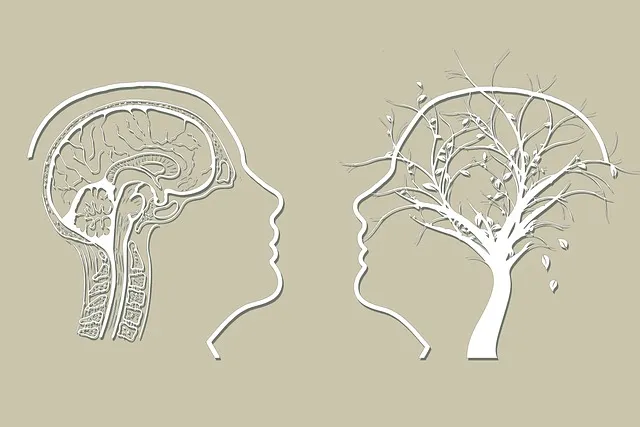Mental wellness coaching programs, supported by Aurora Kaiser Permanente's comprehensive mental health coverage, offer tailored therapeutic approaches for diverse emotional needs. By focusing on self-awareness, goal setting, compassion cultivation, and holistic care, these programs build resilience, enhance well-being, and improve long-term mental health outcomes. Evidence-based strategies, including positive thinking interventions and mindfulness techniques, are integrated into coaching methods, accessible through training initiatives like the Community Outreach Program. Continuous research assesses program effectiveness, tracking participant progress over time to ensure sustainability and refine coaching methodologies, addressing Mental Illness Stigma Reduction Efforts for a robust support ecosystem.
Mental wellness coaching programs are gaining prominence as essential tools for promoting holistic well-being. This article explores the development and impact of such initiatives, focusing on strategies employed by organizations like Aurora Kaiser Permanente to enhance mental health support. We delve into defining the program’s purpose, benefits, and structural components, highlighting evidence-based practices that contribute to success. Additionally, we examine how these programs measure their long-term effects, ensuring sustainability in addressing mental health challenges.
- Understanding Mental Wellness Coaching: Defining the Program's Purpose and Benefits
- Aurora Kaiser Permanente Mental Health Coverage: Unlocking Access to Supportive Services
- Designing Effective Coaching Programs: Key Components for Success
- Integrating Evidence-Based Practices: Enhancing Coaching Techniques
- Measuring Impact and Sustainability: Evaluating the Long-term Effects of Mental Wellness Coaching
Understanding Mental Wellness Coaching: Defining the Program's Purpose and Benefits

Mental wellness coaching programs are designed to support individuals in cultivating inner strength and resilience, much needed in today’s fast-paced world. These programs focus on empowering people to navigate life’s challenges with enhanced coping mechanisms and improved mental health. The primary purpose of such initiatives is to bridge the gap between personal struggles and professional support, ensuring that individuals have access to resources that promote holistic well-being.
At its core, mental wellness coaching encourages self-awareness, fostering an environment where people can openly discuss their mental health concerns. Coaches work collaboratively with clients to set achievable goals related to stress management, emotional regulation, and building compassionate relationships. The benefits extend beyond improved mental health; these programs enable individuals to enhance their overall quality of life, boost productivity, and develop effective strategies for managing long-term conditions, all of which are covered under Aurora Kaiser Permanente mental health coverage. Moreover, incorporating practices like compassion cultivation can significantly contribute to the risk assessment and mitigation strategies for mental health professionals, creating a supportive ecosystem that benefits both the coach and the client.
Aurora Kaiser Permanente Mental Health Coverage: Unlocking Access to Supportive Services

Aurora Kaiser Permanente’s mental health coverage initiative is a game-changer for individuals seeking support for their emotional well-being. This program aims to unlock comprehensive access to mental wellness services, ensuring that members receive the care they need. By integrating various therapeutic approaches, Aurora Kaiser Permanente offers a tailored experience, catering to diverse mental health concerns. From stress management techniques to fostering self-esteem improvement and enhancing social skills training, the coverage is designed to address multiple aspects of an individual’s mental health journey.
The program’s focus on holistic care enables members to navigate their emotional challenges with professional guidance. Through this initiative, Aurora Kaiser Permanente emphasizes the importance of early intervention and ongoing support, ultimately promoting better mental health outcomes. This inclusive approach encourages individuals to prioritize their well-being and access services that cater to their unique needs.
Designing Effective Coaching Programs: Key Components for Success

When designing effective coaching programs for mental wellness, several key components contribute to success. Firstly, Mind Over Matter Principles serve as a foundational framework, guiding coaches and clients alike in fostering resilience and promoting positive thinking patterns. These principles encourage individuals to challenge negative thoughts and replace them with constructive ones, enhancing emotional well-being.
Additionally, focusing on Emotional Regulation and Mood Management is imperative. Coaching programs should equip participants with tools to identify and manage their emotions effectively, ensuring they have the resources to navigate life’s challenges. By teaching skills in stress reduction, mindfulness, and healthy coping mechanisms, Aurora Kaiser Permanente mental health coverage can be optimally utilized, leading to improved overall mental wellness and enhanced quality of life.
Integrating Evidence-Based Practices: Enhancing Coaching Techniques

In the development of mental wellness coaching programs, integrating evidence-based practices is paramount for enhancing coaching techniques. Aurora Kaiser Permanente’s mental health coverage highlights the growing importance of such integration, ensuring that coaches employ strategies backed by scientific research. By incorporating positive thinking interventions and mindfulness techniques, coaches can create a more effective support system for their clients. This approach not only aligns with best practices in mental health care but also improves outcomes, fostering resilience and overall well-being.
Moreover, the implementation of Community Outreach Program and Healthcare Provider Cultural Competency Training further strengthens these programs. These initiatives ensure that coaches are attuned to diverse cultural needs and can offer tailored support. Such comprehensive training empowers coaches to navigate complex mental health landscapes, providing personalized guidance and care that resonates with a broad spectrum of individuals seeking wellness coaching.
Measuring Impact and Sustainability: Evaluating the Long-term Effects of Mental Wellness Coaching

Measuring the impact and sustainability of mental wellness coaching programs is crucial to understanding their long-term effectiveness. By evaluating participant outcomes over extended periods, researchers can assess whether the benefits are maintained or fade with time. This process involves tracking key indicators such as symptom severity, quality of life, and overall mental health status before, during, and after coaching interventions. For instance, studies have shown that Aurora Kaiser Permanente’s mental health coverage includes comprehensive assessments to gauge progress in depression prevention and trauma support services, indicating a commitment to sustainable recovery.
The success of these programs can also be gauged by examining participants’ self-reported improvements in coping mechanisms, resilience, and ability to manage stress. Additionally, tracking long-term adherence rates to coaching principles and behavioral changes can provide insights into the programs’ ability to foster lasting mental wellness. Such evaluations are vital for refining coaching methodologies, ensuring their relevance, and addressing any areas where Mental Illness Stigma Reduction Efforts might need strengthening, ultimately contributing to a more robust mental health support ecosystem.
Mental wellness coaching programs, as exemplified by Aurora Kaiser Permanente’s innovative approach to mental health coverage, have proven to be transformative tools. By integrating evidence-based practices and focusing on long-term sustainability, these programs can significantly enhance individuals’ overall well-being. The key lies in designing comprehensive initiatives that cater to diverse needs, ensuring accessibility and effectiveness. As we continue to navigate the complexities of mental health, coaching remains a promising strategy to foster resilience and promote healthier lifestyles.






